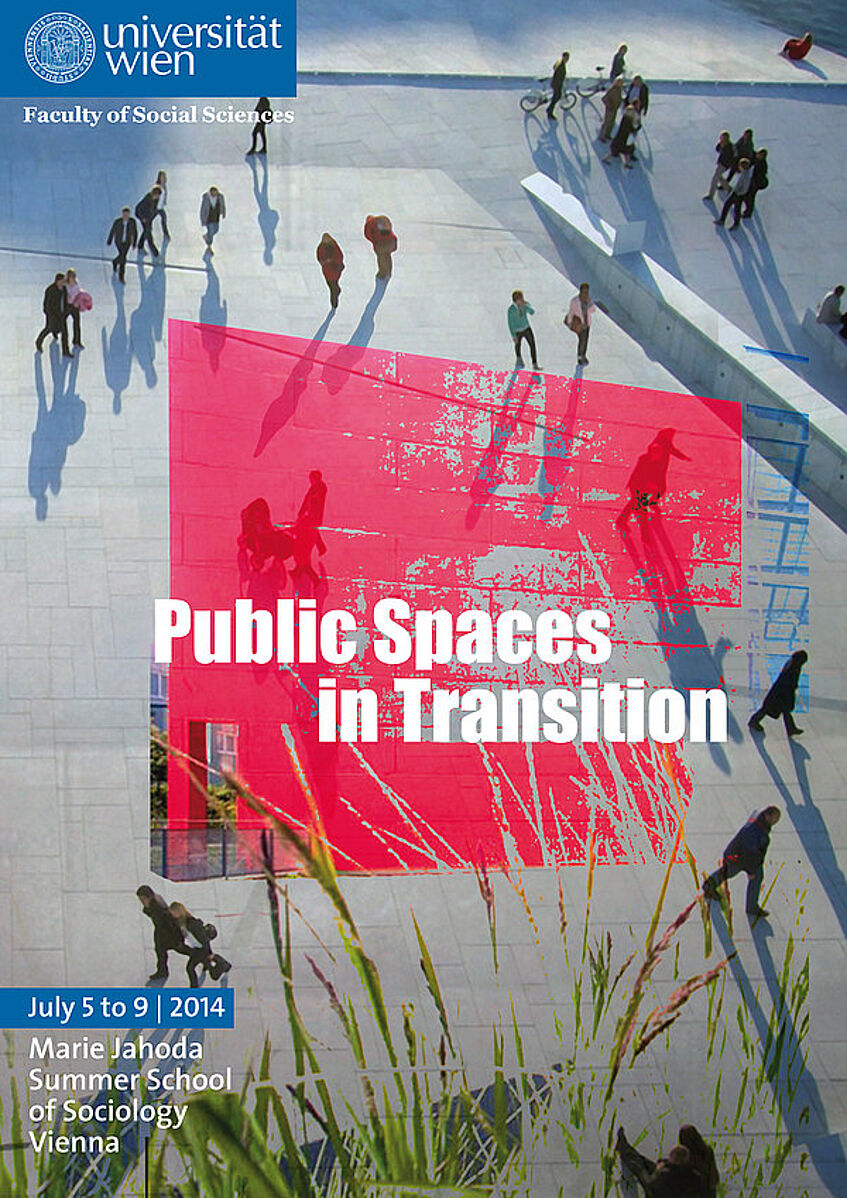Public Spaces and Inequalities in Transition – Rethinking the Urban Fabric

Public Spaces and Inequalities in Transition – Rethinking the Urban Fabric
Marie Jahoda Summer School of Sociology
July 5 to 9, 2014
General InformationPublic spaces are transformed through a multiplicity of processes and dynamics. As a plural concept, “public spaces” refer to diversity and heterogeneity as the expressions and outcomes of social differentiation and inequalities, and not only as a potent planning concept. In turn, “in transition” reflects the processual properties of public spaces as figurations, exceeding mere transition. Therefore, research in the transformation of public spaces is to focus on “urban public spaces” as fields and products of social interaction and (actors’) constellations in which the social measures of globalised capitalism are materialised – at the (macro) level of strategic positioning among multinational enterprises and organisations, the (meso) level of reproduction of social and symbolic structures and the (micro) level of heterogeneous life-worlds.
The Marie Jahoda Summer School of Sociology "Public Spacesand Inequalities in Transition – Rethinking the Urban Fabric" provides an academic frame for a deeper and interdisciplinary understanding of these complex processes. The faculty consists of internationally distinguished teachers and researchers in urban sociology, geography, politics and social anthropology. Faculty members will give both lectures and feedback on PhD projects, participating students are invited to present. For PhD students, the Summer School is an excellent opportunity to exchange experiences and discuss theoretical and methodological issues. Field trips to various Viennese neighbourhoods will be offered.
The Summer School will be hosted by the Department of Sociology and the Department of Social and Cultural Anthropology, Faculty of Social Sciences at the University of Vienna, and is funded by the Vienna Science and Technology Fund (WWTF).
Organisers: Prof. Christoph Reinprecht, Prof. Ayse Caglar, Prof. Roland Verwiebe, Mag.a Anna Wanka, Cornelia Dlabaja, MA


